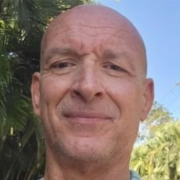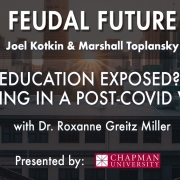Secession Is a Threat Californians Should Take Seriously
At the height of the anti-Trump hysteria after 2016, Democrats in California talked often about “Calexit”, which would allow the Golden State to secede and, no doubt, form an ideal Ecotopia of its own. Now that the Democrats are in power in Washington and Sacramento, there are new calls to break up the Golden State, this time from more conservative regions in the state’s interior.
Since becoming a state in 1850, California has experienced over 220 break-up attempts. Much of this has been sparked by the regulatory regime in California, which has long been at odds with the more rural and suburban parts of the state. For years activists in a host of northern California counties have pushed for a breakaway “state of Jefferson”. This has appealed to pro-Trump Republicans, noting how he won most rural counties in both 2016 and 2020.
As the New York Times reports, the area makes up one-fifth of the state’s geography, but barely 3% of its population. It is, according to the paper, “also generally whiter, older and poorer than the rest of the state.” Some have even spoken of joining other areas in the primarily conservative and rural eastern parts of Washington and Oregon to form something like “a greater Idaho”.
But it’s not just the far north that harbours rebellious thoughts. San Bernardino County, with more than two million people, has also initiated a study about seceding from the state. The county covers a huge expanse — the largest of all US counties on the mainland — that stretches from the Los Angeles border to Arizona. Although the county is now majority Hispanic, its politics are more Right than Left, and opposed Gavin Newsom’s second term. Local legislators complain bitterly of poor treatment by the increasingly far Left city-centric politicians in Sacramento.
The revival of secessionism represents more than a revolt of the old, the white and the not-too-bright. In fact, interior California represents more of the state’s future than many may appreciate. Demographer Wendell Cox has noted that the inland parts of the state have accounted for almost two-thirds of the state’s population growth since 2000. It remains largely dominated by single family housing, which is preferred by the vast majority of the state’s population.
In the first two years of the current decade, the Interior and Valleys grew by 120,000 residents, while coastal areas lost 621,000 residents. According to this trend, by 2048, Riverside County will have 3 million residents, up from 2.5 million in 2022. Meanwhile, San Bernardino County is expected to have 2.6 million residents in 2048, up from 2.2 million today. It is in these regions where the ultimate future of the state lies.
If they don’t succeed in secession, the interior areas will become more powerful in the future, as the coast ages and loses population. With its falling birthrate and rising net outmigration, California, the birthplace, and global centre of youth culture, is now nearly as old as the rest of the country, but ageing 50% faster than the national norm, according to the American Community survey. Los Angeles has suffered the biggest loss of young people in the nation, haemorrhaging 750,000 people under 25 since 2000.
At some point the voices of these inland areas could have a moderating influence on the states. Much of the interior is majority Latino, and like the white “rednecks” in the far north, these voters may be fed up with the current regime If California changes, the impetus will come from these oft neglected, but growing communities.
This piece first appeared at UnHerd.
Joel Kotkin is the author of The Coming of Neo-Feudalism: A Warning to the Global Middle Class. He is the Roger Hobbs Presidential Fellow in Urban Futures at Chapman University and Executive Director for Urban Reform Institute. Learn more at joelkotkin.com and follow him on Twitter @joelkotkin.
Homepage photo: courtesy UnHerd.









